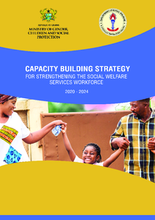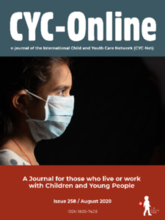Displaying 121 - 130 of 505
This podcast episode discusses the question: do child protection professionals have what they need to support and protect children as the coronavirus makes a comeback?
The study from Chile, Lithuania and Norway explores how social workers define family and more specific the position of extended families within child welfare and thus indicate contextual differences and similarities.
In this study on childcare staff in children’s homes of Kasaragod district of Kerala, the researcher adopted a descriptive design and selected all registered children’s homes for the study purpose.
Based on social welfare workforce assessment, a long-term capacity building strategy was developed to assist the Government of Ghana - specifically the Ministry of Gender, Children and Social Protection (MoGCSP) and the Office of the Head of Local Government Service (OHLGS) - to strengthen its social welfare workforce in order to respond appropriately to the needs of vulnerable and marginalized children and other populations in the country.
This study aimed to explore questions relating to caseworker’s training on ethnocultural diversity in connection with racial disparities and overrepresentation of Black children in child welfare services.
This qualitative study, conducted in four child and youth care centres in the Tshwane region of South Africa, presents some techniques used by child and youth care workers to develop belonging.
The purpose of this project was to determine if there were differences in learning outcomes between learners who completed child protection training in the usual delivery methods (Pre-COVID) and the fully virtual delivery methods (Post-COVID).
For this study, a review of research literature on the epidemiology of vicarious traumatization among child welfare professionals was conducted.
For this study, a review of research literature on the epidemiology of vicarious traumatization among child welfare professionals was conducted.
This issue of the e-journal CYC-Online includes articles on the impact of COVID-19 on children in alternative care in South Asia, residential care centers during COVID-19, child welfare experience among child and youth care practitioners, and more.


